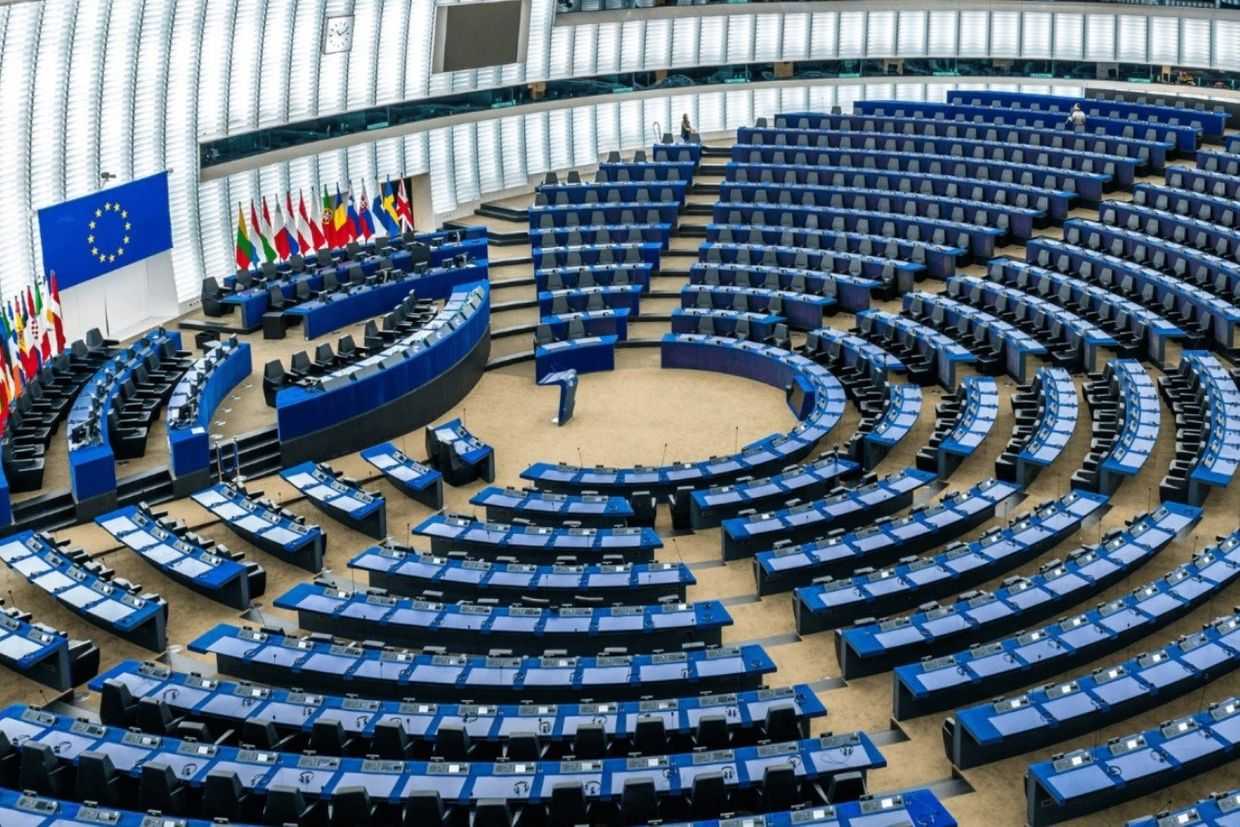
Several dozen coal miners in the western Georgian town of Tkibuli staged a protest against Steel International Trade Company, their employer, demanding concrete information about the safety of the mine shafts. Several workers had been poisoned in a mine shaft the previous week.
This latest protest, on 16 March, followed the poisoning of five workers in a mine shaft on 9 March. Three workers were hospitalised.
Ruslan Butskhrikidze, the leader of the initiative group, told OC Media, that he and other workers find it ‘futile’ to talk about the safety issues with the Company as they have had no reaction to their demands.
Butskhrikidze also said that the company transported the poisoned workers to Kutaisi using private vehicles instead of calling the ambulance in order not to prevent the accident from becoming public knowledge.
Protesters first gathered outside the Company’s office and later moved to the town centre outside the City Hall.
Tkibuli mayor Temur Chubinidze, who had met them there, said he was doing everything to solve their problems and that ‘relevant authorities were already informed’ about their problems.
According to Butskhrikidze, the government and Steel International Trade Company have ignored their grievances. The company took ownership of the shafts from Georgian Industrial Group (GIG) several months ago.
‘There has not been any reaction from the government so far’, he said. ‘Not one word.’
‘The underground mine is dangerous because it can emit the gas concentrated into the shafts in any given time’, a statement released on 13 March by the workers reads. ‘The state has abandoned us.’
On the following day, the miners demanded that the company meet them publicly, together with government representatives.
‘We are reminding you that in 2018, after our 10 friends tragically perished, Prime Minister [Giorgi Gakharia] promised not to resume coal extraction works until the work in the shafts was safe for us’, the miners said in a prepared video statement on Saturday. ‘We are reminded of this promise bitterly every time we go down into the shafts.’
Tkibuli miners urged the government to intervene before another tragedy takes place, for which they said they would find ‘the state and the company equally responsible’.
A series of fatal accidents and temporary closures
In late September, after a mine shutdown that followed a series of protests in summer and early autumn, the Georgian government announced that Steel International Trade Company was taking ownership of the mines and that they would re-open after it was ensured that they were safe.
Both the company and the government vowed that workers would also be paid any overdue salaries and that the families of injured or killed miners would also receive financial assistance.
Assurances from the government came two days after 30 miners descended into Mindeli and Dzidziguri shafts on 24 September last year and refused to vacate them until they were paid unpaid wages
Tkibuli miners found themselves on involuntary paid leave in July 2018, following a series of workplace accidents in 2017 that left 17 workers dead.
Since July 2018 to September 2019, workers living in a town overwhelmingly dependent on the mines organised repeated strikes and protests demanding salaries and safer workplaces.
[Read Lana Kokaia’s feature story on OC Media: Stuck between a rock and a hard place — the miners of Tkibuli]
‘Especially dangerous’
Ruslan Butskhrikidze has told OC Media the safety conditions in the shafts haven’t improved at all since last autumn, ‘if not worsened’.
They say the old equipment has not been replaced and is now even older and more obsolete.
‘The state should pay more attention to the study by DMT which checked working conditions in the shafts last year and found problems even in the mines that were not operating at that time’, Butskhrikidze said.
Upon suspending all mines in Tkibuli in 2018, the Georgian Labour Ministry commissioned a workplace safety audit to the German DMT Group, which identified several critical issues in the shafts, including bad supervision over the combustible methane emitted during the work and a bad ventilation system.
The DMT report was also widely cited on 17 March by Tbilisi-based group Human Rights Education and Monitoring Centre (EMC), which called on the Georgian government to halt all mine extraction works until the labour conditions were safe in Tkibuli mines.
Currently, the initiative group of Tkibuli miners do not rule out going on a hunger strike unless there receive answers from the government.
In their 2019 report, Human Rights Watch criticised Georgia for a lack of workplace safety regulations and urged the government to ratify and implement the International Labour Organisation conventions on occupational health and safety, health in mines, and hours of work in the industry.
The US State Department report on Human Rights released last week noted that in 2019, Georgia’s ‘mining and construction sectors remained especially dangerous’.
OC Media has reached out to Georgian Labour Ministry for comment.







